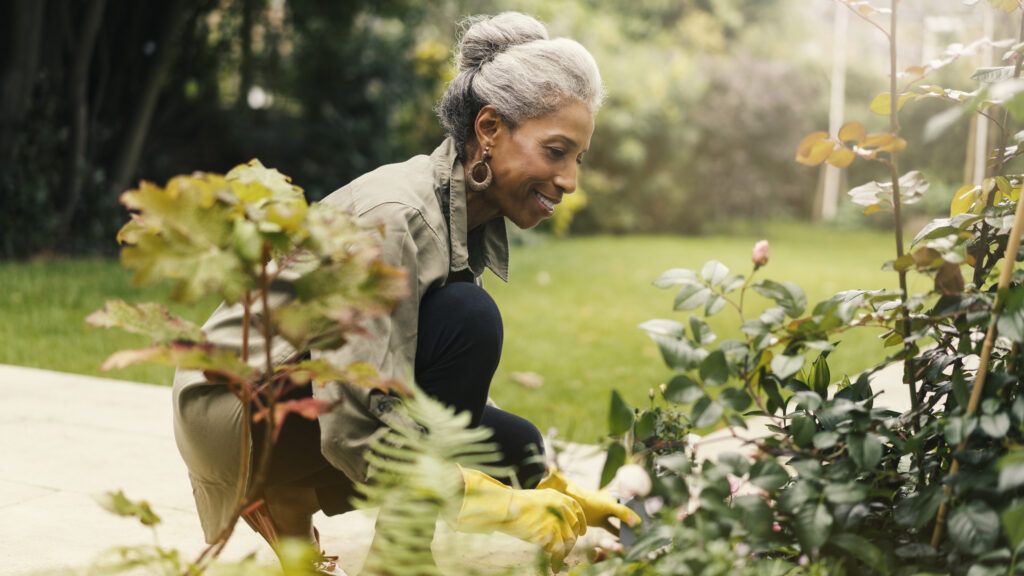Science is proving what people with green thumbs have long known to be true: gardening is good for you. The common, often relaxing hobby can reduce levels of pain and stress, improve attention and boost immune systems, according to several published studies. Roger Ulrich, a behavioral scientist and expert on healing gardens, explained, “We have a biologically prepared disposition to respond favorably to nature because we evolved in nature.”
Here are a few tips to tap into the soothing power of gardening in your own life:
1. Be present
Nature has the ability to pull us out of our ruminations and ground us in the present moment. Gardening occupies our left-brain in tasks like planting and fertilizing, while immersing our right brain in the aroma of flowers and the feel of soil. Allow the rhythmic nature of weeding, trimming and sowing to take you to a state of flow, or single-mindedness, that harnesses all emotions into one action and stimulates feel-good endorphins.
2. Connect with other living things
In his book Biophilia, Edward Wilson describes the human fascination with nature as “the urge to affiliate with other forms of life.” Similarly, researchers like Jon Fieldhouse have determined that the plant-person relationship is beneficial because it requires the nurturing dynamic that allows humans to bond without the drama of human emotions. The takeaway? Don’t be afraid to bond with your flowers and plants.
3. Take responsibility
There’s a reason therapeutic gardening is used to teach responsibility and life skills to at-risk youths. At Pacific Quest, a Hawaii camp for troubled teens, students build garden beds, plant the seeds and care for the seedlings, As they care for their creation, the teens are able to translate problem-solving skills and insights into their own lives. You don’t have to be a troubled teenager to use gardening to learn that even a small action, like watering a flower, can make a substantial impact.
4. Vent
Much like life, nature is messy and becomes disorderly and unkempt if uncared for. Its potential for destructiveness is the same force that drives growth and renewal. Gardening is an appropriate place to vent our anger and to use aggressiveness in a positive way. After all, if we don’t tend to the weeds, we risk losing our lettuce or tulips. For a person who has always been afraid of anger, gardening is especially helpful for me to see that asserting some control is an act of love and discipline that leads to new growth.
5. Enjoy the view
In a famous study in the journal Science, Ulrich demonstrated how gazing at a garden can sometimes facilitate healing from surgery, infections and other illnesses. In the study, people recovering from gallbladder surgery with a bedside window looking out on leafy trees healed, on average, a day faster, needed less pain medication and had few postsurgical complications than those who had a view of a brick wall. Pictures of landscapes can also do wonders, as highlighted in another Ulrich study. When his team showed images of water and trees to patients, this group ended up needing fewer doses of pain medicine than patients who looked at dark forest photographs, abstract art or no images at all. If you’re not feeling up to watering or weeding, simply gaze at your garden and reap the healing benefits.
6. Cultivate hope
“It is the time you have wasted for your rose that makes your rose so important,” said the Little Prince in Saint-Exupéry’s classic The Little Prince. Gardening allows us to experience the transformative power of caring for something. Plants teach us that things never stay the same, and that although growth may be invisible to us, it is still happening all the time. Gardening teaches us patience and the hopeful anticipation of new life. When you plant your next seed, breathe in the hope that your creation represents.






